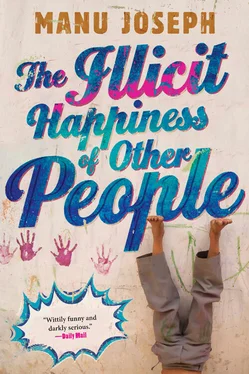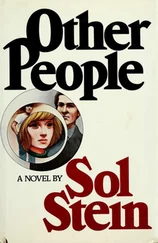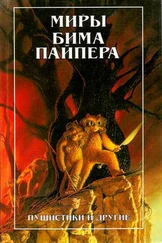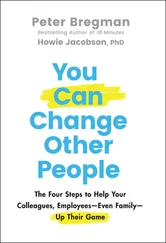In the comic that is titled Absolute Truth , a blank white envelope floats through deep space, orbits strange worlds and finally heads towards Earth. When it enters the Earth’s atmosphere, the envelope burns and what emerges is another white envelope. It has ‘Absolute Truth’ written on it. It floats down and falls on an endless field. A bare-chested farmer picks it up, opens the envelope, takes out a sheet of paper. He reads it and starts laughing uncontrollably. He passes it on to his wife who, too, begins to laugh. She shows it to the infant in her arm, who becomes breathless with laughter. The farmer passes the Absolute Truth to his neighbour, who holds his stomach, rolls about his cabbage farm and laughs. The letter changes hands across homes, villages, across cities, across the whole world, leaving people hysterical with laughter at the long-awaited discovery of absolute truth.
In Enlightenment , a sage in robes is meditating; he is sitting on a high snowy peak. Seasons change, storms pass, but nothing bothers him. He gets a massive erection, which subsides in time, but the man is undisturbed, unaware of what is happening to him and around him. Mountain climbers arrive with their national flags and leave disappointed when they find someone already on the summit. The sage becomes very old, his beard turns white. Finally, he becomes radiant. A halo appears behind him. He has achieved enlightenment. He opens his eyes looking totally stunned. He screams, ‘Shit, I am a cartoon.’
There are very few dialogues in Unni’s comics and the absence of prose lends a brooding, abstract quality to his works, especially in one of his most ambitious stories, Beatles, Crossing , which is twenty-one pages long. It begins with a red beetle standing on one side of a broad black road. The beetle says, ‘I want to go to the other side.’ And it starts crossing the road. The comic then cuts to the four Beatles performing in various parts of the world, against backdrops of iconic monuments. Everywhere they go there are huge delirious crowds. At one point in the comic there is a question: ‘Why Is Ringo Starr Not As Famous As The Other Three Beatles?’ Under the question is a portrait of the four Beatles performing. At the bottom of the page is the answer: ‘Because He Was Always Sitting’. Could this be true? As the story unfolds, it appears that the Beatles are slowly growing sad and discontent. They come to India and meet holy men, who are always in yogic poses. The Beatles begin to meditate, wear Indian clothes, get into extraordinary yogic contortions, play Indian classical instruments, shit on the banks of a river. But then they become sad and lost once again. They return to England, return to their old lives. And one day, they cross a road, they walk across a zebra crossing. All through this, the red beetle has been making its difficult progress across the same road, narrowly escaping violent death under the tyres of speeding vehicles. The final window of the comic has the triumphant red beetle, who has crossed the road and reached the pavement, which is strikingly identical to the pavement from which he had started his difficult journey. He says, ‘I have crossed over to the other side.’
Ousep snaps out of the comic world because he is reminded of something unpleasant, something that vaguely resembles a herbivorous animal’s petty fear of life, but he is not sure what has made him think of this. Then he recognizes what it is. The sight of three adolescent schoolboys who have just emerged from a gate and are now walking in his direction. One of them has sacred ash smeared on his forehead in three straight lines, as if a cycle has run over him. They are in school uniform — white shirts that are already slipping out of their khaki trousers. They don’t walk erect, there is no spring in them, there is no joy. The boys stare at him with meaning; he returns their stares without contempt.
The most foolish description of the young is that they are rebellious. The truth is that they are a fellowship of cowards. It is true anywhere in the world, but the fear of the adolescent boys on Balaji Lane is exceptional. They are terrified of everything, of life, of their future, of friends doing better than them, of falling off their cycles, of big trucks and large men, and of beautiful women. The only thing that does not scare them is calculus.
They might have turned out a bit differently if they had not been so retarded by a long torturous preparation for one engineering entrance exam. The day they were born and were diagnosed with having a penis, their fate was decided — to one day take the Joint Entrance Exam. The toughest exam in the world, their fathers say. One in a hundred would make it. It has been over twenty years since anyone from the colony has got through. Their fathers tell them every day of their lives, sometimes holding a leather belt in their hands, that the JEE alone will decide their lives because it will eventually take them to America on a full scholarship. On a street where every boy knows that his future rests on a single test with multiple-choice questions, it is appropriate that the four identical buildings here are named A, B, C and D.
As the three boys pass Ousep, he hears one of them ask, ‘Tan 2x is equal to?’ The other two answer simultaneously in a burst of triumph, ‘Two tan x by one minus tan square x.’
THE BOY SEES OUSEP walking towards him and turns his face away, like a wounded lover who truly does not wish reconciliation. Sai Shankaran, a close friend of Unni, according to general consensus, waits for his bus every morning at the Liberty bus stop. The last few weeks, Ousep has come here almost every morning to torment him. Sai claims he has revealed all that he knows and has nothing more to say. But Ousep does not believe that, he wants to break him. That should not be very difficult. Sai was seventeen when he was slapped by his father in front of his friends for playing cards. He is twenty now but he still looks like a boy who can be slapped around by an older male.
Sai stands in his spineless way, young but antiquated, studious but not clever, a thick steel watch on his wrist, his oiled black hair combed in the good-boy hairstyle. He looks like the past of an old man.
He failed all the engineering entrance exams that he had taken, and scored just eighty-nine per cent in the twelfth-standard board exams. So he endures the terrifying ignominy of studying physics in just another obsolete arts and science college where Jesuit brothers and blind people go to study English literature. He is in the final year now, but, still unaccustomed to failure, he goes through life like a ghost and probably avoids all the cousins and friends who go to engineering colleges. Sai will learn to be happy again one day, he will even imagine that he is not worthless. He does not know it yet but the simple fact is that he will make it. Ambition is the capacity for unhappiness and Sai has a lot of that to pull through.
And one day he will land in the United States, just like almost everybody else from his class. And one evening he will meet his old friends at a vegetarian restaurant. When they run out of things to say, someone will say, with a gentle smile, ‘Remember Unni Chacko?’ And through the silence that the name will cast he will tell himself that Unni Chacko may have laughed at him once upon a time but as things stand, Sai has won. And Unni had long ago lost.
Sai and Unni, taken together, must have been an odd sight. Sai, always tense, toiling, afraid that he is a moron and groomed from childhood to believe that intelligence is purely a mathematical ability. Unni, handsome in a careless way, and passing through life with the lethargy of an artist. It is hard to accept there was any love or respect between them. That any two men in the world have real affection between them is itself a myth, chiefly of the two men. But Sai and Unni, especially, are impossible friends. One must have used the other.
Читать дальше












